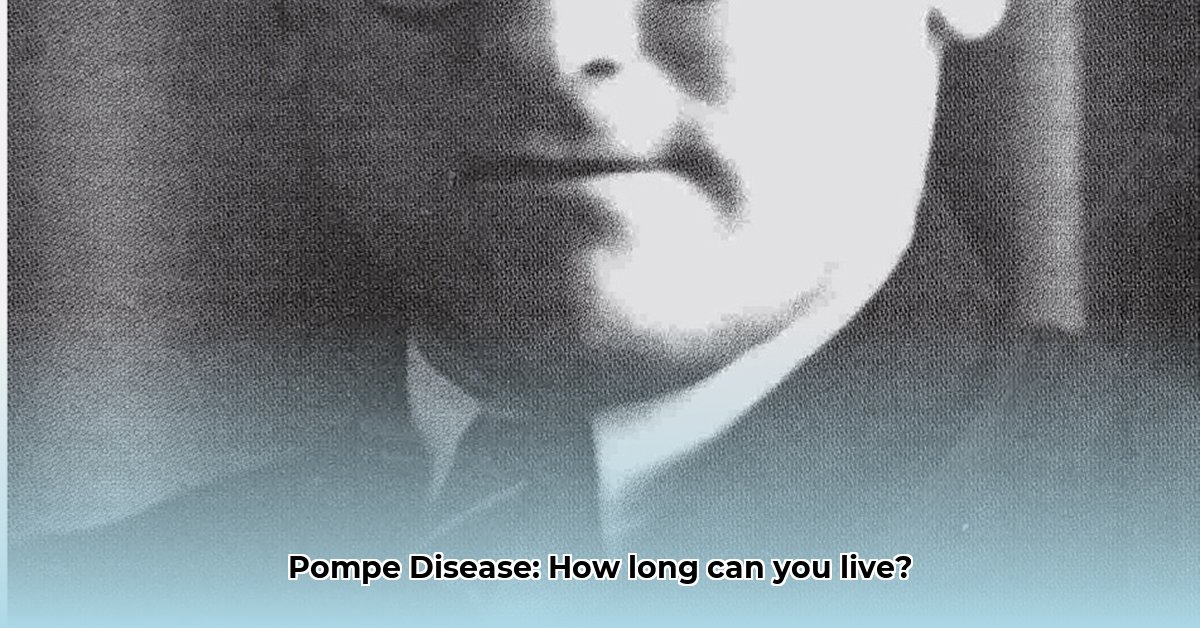
Ziekte Van Pompe Levensverwachting: Navigating the Journey
Pompe disease, or Ziekte van Pompe, is a rare inherited disorder affecting how your body breaks down glycogen (a type of sugar stored in muscles). This build-up weakens and damages muscles, leading to various challenges. The severity and progression of the disease vary considerably, making it difficult to predict a precise life expectancy. This article explores the complexities of Pompe disease, focusing on how different factors influence survival and what hope the future holds.
Understanding the Different Forms of Pompe Disease
Pompe disease presents in various forms, primarily categorized by age of onset: infantile-onset and late-onset. Infantile-onset Pompe disease, appearing in the first few months of life, is the most severe form. Without treatment, it can lead to early death. Late-onset Pompe disease, diagnosed later in childhood or adulthood, progresses more slowly. Think of it like two rivers: infantile-onset is a raging torrent, while late-onset is a gentler stream – both erode, but at drastically different speeds. This crucial difference significantly influences the overall life expectancy and disease progression.
Life Expectancy: A Nuanced Picture
Giving a fixed number for life expectancy with Pompe disease is misleading. It's not a straightforward calculation. Instead, it's a spectrum influenced considerably by the disease’s severity and age of onset, highlighting the importance of early detection and intervention. While infantile-onset Pompe disease without treatment carries a grave prognosis, effective treatment can significantly improve outcomes. Late-onset Pompe disease, while still requiring management, generally has a less severe impact on lifespan, with treatment prolonging life expectancy. But even with the best medical care, potential long-term complications and individual responses to treatment affect the overall prognosis.
Treatment and Management: Hope and Ongoing Care
Enzyme Replacement Therapy (ERT) is a vital treatment. It replaces the missing enzyme responsible for the glycogen build-up. ERT has significantly extended lifespans and improved quality of life for many, particularly those with late-onset Pompe disease. However, ERT isn't a cure-all. Some individuals experience side effects, and ongoing management is crucial. Supportive therapies like physiotherapy, respiratory support, and other medical interventions are essential for managing symptoms and improving outcomes. Treating Pompe disease is a collaborative effort between patients, families, and a multidisciplinary medical team. Isn't that team approach a testament to the human spirit in the face of adversity?
Factors Influencing Prognosis: A Multifaceted Perspective
Several factors, beyond the type and severity of Pompe disease, affect the prognosis. These include co-morbidities (other health conditions), the specific genetic mutations causing the disease, and access to quality healthcare, including timely diagnosis and consistent access to ERT. Consider this: access to quality healthcare is crucial, and even in a developed country like South Africa, there can be challenges to access! The availability and quality of healthcare are vital factors for positive progression.
Research and the Future: A Beacon of Hope
Research into Pompe disease is ongoing, offering much hope for the future. Gene therapy, for example, shows promise. The development of new therapies and improved treatments aims to further extend lifespans and enhance quality of life for those living with Pompe disease. These scientific advancements constantly refine our understanding of the disease and contribute to better treatment strategies.
Living Well with Pompe Disease: Embracing Resilience
A diagnosis of Pompe disease does not define a person's life. Early diagnosis, consistent treatment, proactive symptom management, and a supportive network contribute to leading a full and meaningful life. Living with Pompe disease requires adaptation, focusing on strengths, and connecting with supportive communities. Remember, you're not alone on this journey. The ongoing research and advancements in treatment offer continued hope, reminding us that a diagnosis does not dictate the trajectory of a life.